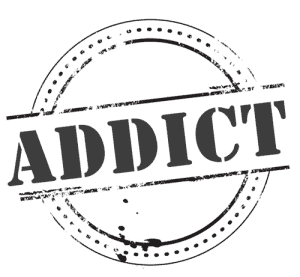The Biggest Lies in Recovery, Pt. V: Labeling
by Thaddeus Camlin, Psy.D.
Labels Can Actually Hurt the Recovery Process

There is no research that indicates people are more likely to recover from a substance use disorder if they label themselves as anything. However, there is research that shows forcing people to identify as an addict or alcoholic can actually be detrimental to their efforts to change. The latest diagnostic manual for professionals (DSM-5) recognized such research and accordingly removed addiction as an official diagnostic label due to “its uncertain definition and its potentially negative connotation” (p. 485). Even in AA and NA the only requirement for participation is the desire to stop using, there is no requirement to identify as an addict or alcoholic.
The potentially negative connotations to the addict and alcoholic labels are prolific. When I ask people I work with to list all the adjectives that come to mind to describe an addict or alcoholic I elicit a laundry list of negatives (e.g. liar, drunk, manipulative, loser, weak, powerless, etc., etc). If someone labels herself an alcoholic or addict, and thinks that means she is a lying, manipulative, weak, powerless, loser, then she probably doesn’t feel too great about herself. When we don’t feel great about ourselves, substances offer an appealing and reliable break from uncomfortable feelings. Forcing people to think of themselves as lying, manipulative, powerless, losers is not only not helpful, it is tantamount to abuse.
For most of the people I work with, the addict and alcoholic descriptors are what some call labels that disable. Working with people to distance themselves from detrimental labels is often transformative. There is much more to every individual than a problematic pattern of substance use, and abandoning unhelpful labels is often an empowering step in the process of healing and growth.
It is important to recognize that every label for ourselves is a container that constricts the vast complexity of who we are. Often times a pivotal process of healing comes in reconnecting with various aspects of the self that were lost as a particular way of coping became predominant. We are much more than depressed, anxious, bipolar addicts, and the field that is supposed to be there to help us remember and actualize all of who we are all too often ends up constricting us into little boxes of diagnoses.
Liked this article on labeling addiction? You might also be interested in: Labels in Addiction and Recovery
